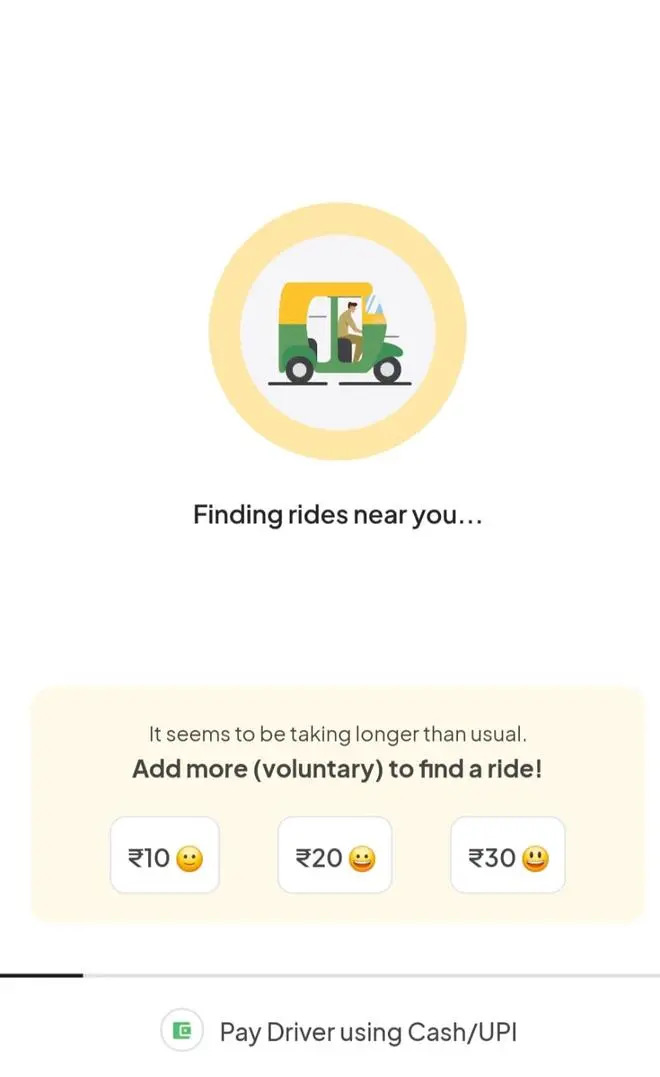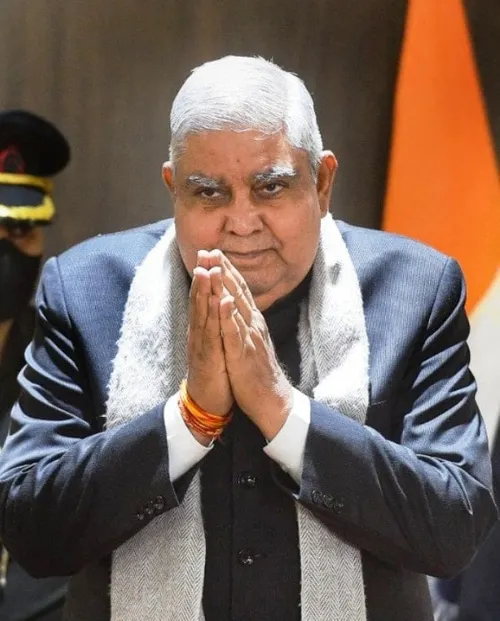Amid increasing criticism, mobility platforms such as Namma Yatri and Rapido have clarified that tipping features on their apps are voluntary, not mandatory, to secure a ride.
This comes after Union Minister of Consumer Affairs, Food and Public Distribution, Prahlad Joshi, posted on X that the Central Consumer Protection Authority (CCPA) is examining practices of ride-hailing platforms including Ola and Rapido. “They will also be served notices if found indulging in such practices,” he said.
Shan M S, COO and Co-founder of Namma Yatri, responded on LinkedIn, stating, “Our ‘Add More’ feature is 100% voluntary and customer-led. The UI has been updated to reflect this clearly. Namma Yatri’s model is direct-to-driver—no commission, no stake in the fare, no discounts, and no unreasonable surge pricing.”
The app has updated its interface to label the option as “Add More (voluntary)“, making it less ambiguous for users.

Namma Yatri adds voluntary to avoid ambiguity
Not tips, but fare negotiation
Aravind Sanka, Co-founder and CEO of Rapido, stressed that the app enables users to negotiate fares directly. “We don’t control prices or take commissions. Riders can increase or decrease the fare, which is shared with drivers. Drivers can then choose to accept or reject it,” he said.
Sanka emphasised the role of the platform, “We’re a lead generation platform—not a fare controller. Riders set the price, and we simply pass that on to drivers, who can accept or reject. There’s no commission, no price manipulation. It’s a SaaS model that connects supply and demand without interfering in the transaction.”
Clarifying on “advanced tipping,” Sanka explained, “This is not tipping. It’s fare negotiation on an app. The number of rides involving a tip is minuscule at a pan-India level for Rapido, in single digits.”
Explaining further on the app-based negotiation, an independent urban mobility expert, Satya Arikutharam pointed out that price changes are influenced not by direct customer-driver interaction but by platform algorithms. “Passengers don’t know who their driver is. Platforms are trained for revenue or trip maximisation. Drivers know that if they delay accepting a trip, the fare might be increased. It’s a herd behavior now,” he said.
He added that tipping before trip” is essentially algorithm-led bargaining. Apps are probing the rider’s willingness to pay more—it’s just digitised street-side negotiation. Drivers now realise that each app is more or less the same and talk about incentives tied to using a particular app. In this subscription-driven model, platforms are trying to create a unique selling proposition (USP) and everyone’s chasing the same limited driver supply in a gamified system and the passenger ends up paying more” he concluded.
Published on May 25, 2025
Anurag Dhole is a seasoned journalist and content writer with a passion for delivering timely, accurate, and engaging stories. With over 8 years of experience in digital media, she covers a wide range of topics—from breaking news and politics to business insights and cultural trends. Jane's writing style blends clarity with depth, aiming to inform and inspire readers in a fast-paced media landscape. When she’s not chasing stories, she’s likely reading investigative features or exploring local cafés for her next writing spot.






